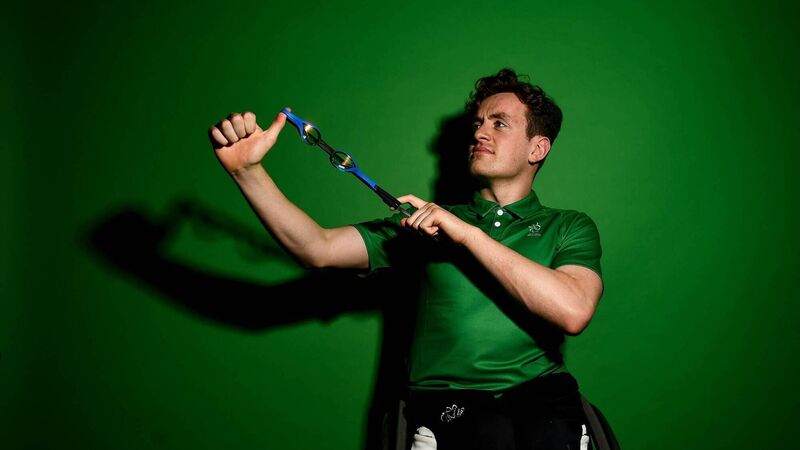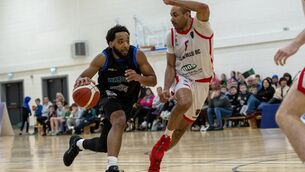Patrick Flanagan: 'It's really hard to put into words, the feeling of seeing my wheelchair broken'

Swimmer Patrick Flanagan during a Tokyo 2020 Paralympic Games Team Announcement at Abbotstown in Dublin. Picture: David Fitzgerald/Sportsfile
An American journalist wouldn't be expected on a Team Ireland Paralympics press call but it's a mark of the impact made by Patrick Flanagan's story of his wheelchair being broken beyond use en route to Tokyo.
Media outlets from the BBC to Sky News to USA Today picked up on the Sligo-based swimmer's tweet about his custom-made wheelchair being "completely broken" in transit on arrival at London Heathrow, where he was given an oversized airport replacement which rendered basic tasks extremely tough.














